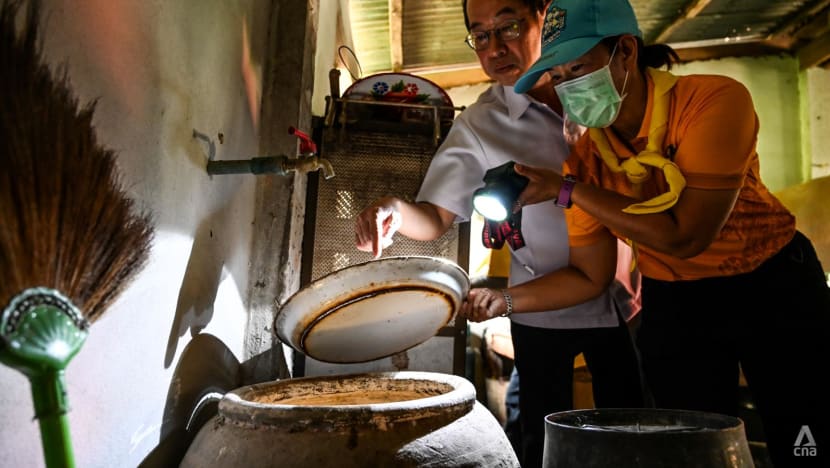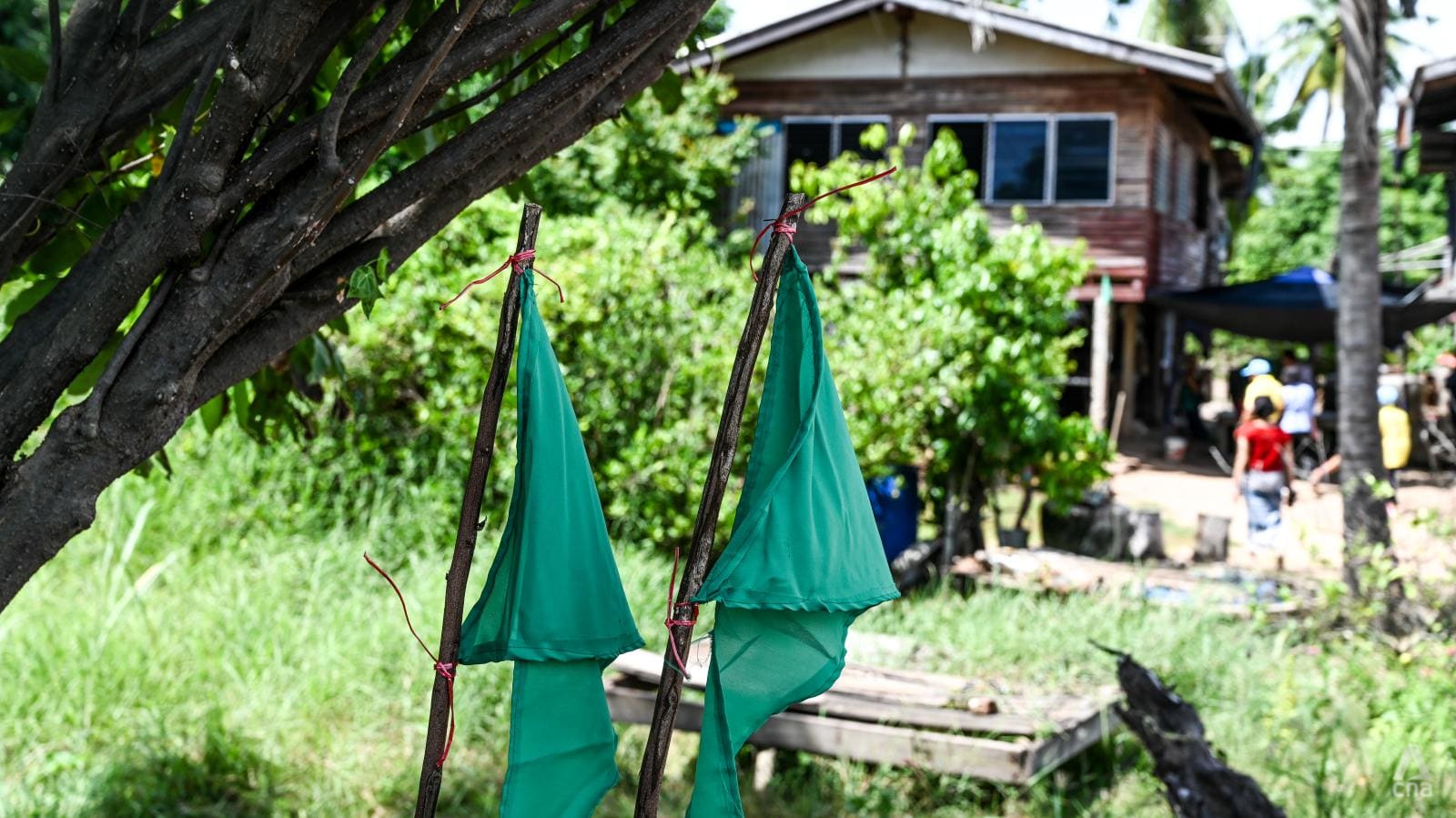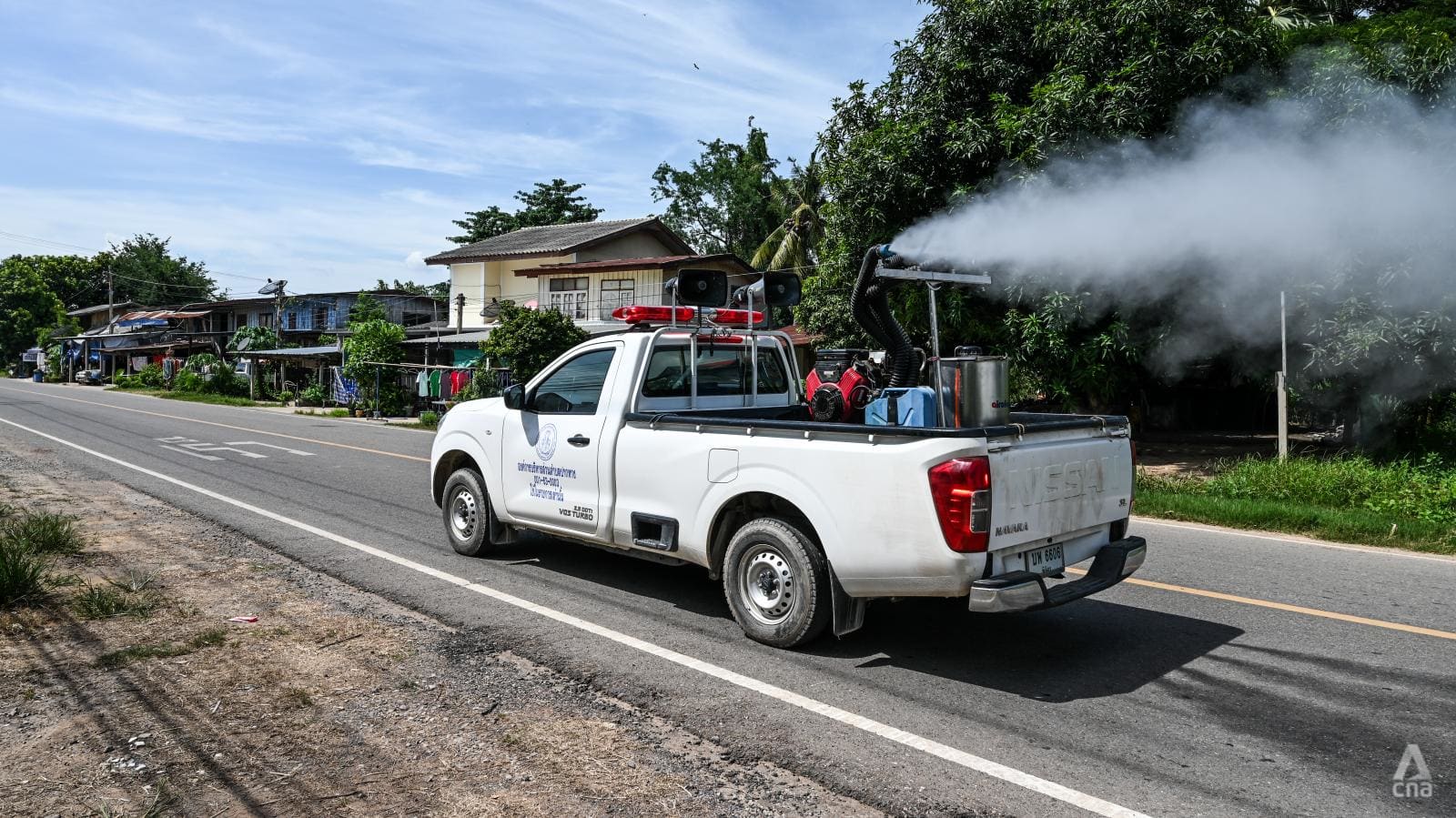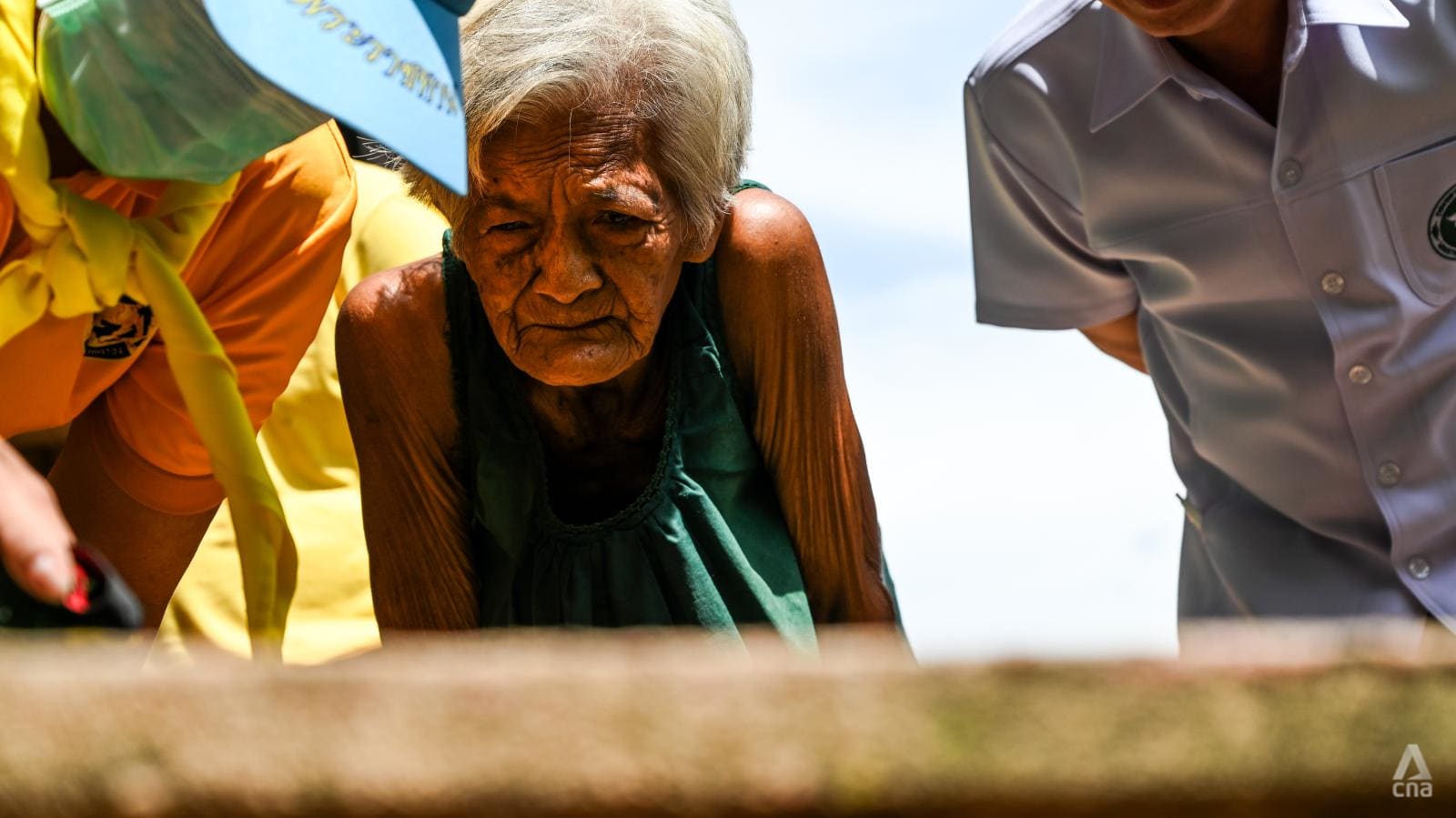How one small community is fighting off the dengue fever scourge, as cases accelerate rapidly in Thailand
Instead of being victims to the deadly disease that can cause high fever and nausea, community leaders in Pak Thang sub-district devised a controversial plan to try to rid themselves of an annual problem.

Volunteers help with mosquito monitoring throughout Pak Thang sub-district. (Photo: Jack Board/CNA)
PHICHIT, Thailand: It was more than a decade back when a small community in the central plains of Thailand decided to take a stand against dengue fever.
Damaging floods had swept across large swathes of the country in 2011, leaving affected provinces like Phichit as ideal mosquito breeding zones.
Instead of being victims to the deadly disease that can cause high fever and nausea, community leaders in Pak Thang sub-district devised a controversial plan to try to rid themselves of an annual problem.
Since then, the local population has been actively and cooperatively managing potential sources of mosquito breeding, especially in homes.
So far in 2023, for a third consecutive year, Pak Thang - a community of nearly 6,000 people and nine villages - has recorded no cases. It is a dengue-free zone.
That is despite the country battling a renewed resurgence of the deadly virus this year, which authorities have warned could result in 150,000 cases if prevention methods fail.

In Phak Thang, fines are handed out to anyone who does not comply with the guidelines. Coloured flags are placed outside every house as indicators of success in eliminating mosquito breeding inside - or not.
“We do the inspection at least once a month. Once the inspection is completed, if we find a house with mosquito larvae, we will give the house an orange flag instead of a green one,” said village chief Surasak Chalermstan.
“We don't really want to collect the fines, but we want to encourage the community to be a part of this initiative. After all, it is their health that is at hand. The fines that are collected then go towards a health fund for the community,” he said.
The community also uses innovation to solve problems. For chemical-averse households, mosquito-eating fish are released into water tanks, while dried blocks made of lime or kaffir lime leaves are also used to prevent mosquitoes from laying eggs in water around houses.
This effective approach is at odds with the realities of a challenging dengue season sweeping across Thailand.
More than 40,000 cases have already been recorded nationwide as of Jul 23, with the monsoon season still ongoing. That is about three times the number recorded at the same time in 2022.
Some 5,000 cases are being recorded every week, according to the Public Health Ministry, which has launched a mosquito eradication campaign targeting 30 districts in 18 different provinces. While dengue tends to be a cyclical issue, case numbers are at a five-year average high.

The national death toll from the latest government figures stood at 40, compared to 10 at this time last year.
“The number of fatalities we see may not be high, but when someone loses their life, it is hard to accept. Therefore, making every community and Thailand as a whole prioritise preventing deaths due to dengue fever becomes crucial. It can be prevented, unlike other diseases that might not always be preventable,” said Wisit Apisitwittaya, Phichit Provincial Health Officer.
“When someone dies from it, especially a child or someone still strong and healthy, it feels like such a significant loss. It serves as a wake-up call. Dengue fever is not something to be taken lightly,” he said.
While historically the majority of dengue fever cases were in young children, there is a trend towards more cases among older people. Still, children remain highly vulnerable to mosquito bites.
“Across Asia, extreme weather events are throwing the lives of children into disarray and this alarming surge in severe dengue outbreaks is just another issue impacting their physical and mental health,” Yasir Arafat, Save the Children’s senior health and nutrition advisor for the Asia Region, said in a release.
“Children’s lives can be saved if we take a comprehensive approach to tackling the threat.”

CLIMATE CHANGE HELPING DENGUE SPREAD
Dengue fever is a disease closely associated with the environment. Rainfall, temperature and airflow all play a part in assisting transmission.
Ongoing research shows the direct connection between climate change and the spread of dengue fever at higher rates and to previously unaffected communities.
In temperate zones with warmer temperatures, mosquitoes may expand their habitats and are able to live in places they could not previously.
“The primary factor influencing this situation is temperature, as even a one-degree increase can result in a 10 per cent higher chance of dengue fever occurrences, according to the research we have conducted,” said Kanchana Nakhapakorn, an associate professor with expertise on dengue fever and climate change at Mahidol University.
Nakhapakorn explained that mosquitoes tend to stay inactive and rest when the temperature is lower - below 24 degrees Celsius. But when the temperature rises, they become more active and are able to fly around in search of food.
“If the temperature rises, the developmental process from eggs to larvae and adulthood of mosquitoes accelerates, the chances of them reproducing and spreading increase significantly. This also makes it easier for disease transmission,” she said.
With increasing urbanisation, common throughout Thailand and the Southeast Asia region, reduced airflow in cities means mosquitoes have better conditions to breed.
The onset of the atmospheric phenomenon known as El Nino is also expected to bring elevated temperatures and the likelihood of extreme weather that could exacerbate dengue spread.
Record heat has already been recorded across many parts of Asia this year and changes to rainfall patterns could prove problematic when trying to contain the disease.
“Since dengue fever occurs due to mosquito bites, improper environmental management could lead to its continuous occurrence. If there is an abnormal amount of rainfall, we surely have reasons to be worried and concerned,” Wisit said.
“When there is frequent rainfall, even small puddles can become breeding grounds for mosquitoes that transmit dengue fever,” he added.

Taking small but disciplined steps to eradicate those breeding grounds is why the Phak Thang community is having success in preventing dengue from spreading.
Even elderly citizens are on board with the plan, like 87-year-old Namyen Phurak.
“I have been fined twice before, so now I am more cautious and constantly remind myself to empty out containers when I don't use them,” she said.
“I feel happy that the community participates in this initiative and helps each other to stay vigilant. I have never had dengue fever.”
Local authorities said they hope the simple measures could be replicated elsewhere as the dengue challenge increases.
“I would like to see other places using this model because it directly relates to their health,” said village chief, Surasak. “Diseases won't spread to houses that are clean and free of mosquitoes.”
Additional reporting by Jarupat Buranastidporn.
Read this story in Bahasa Indonesia here.














